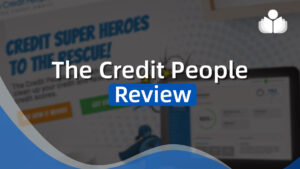Neither of these questions is easy to answer, so I did a little research before writing this post. When I Googled “grant win rate,” I came up with a lot of grant writing consultants that advertized win rates of 75 – 95%. I also came up with a post by Jayme Sokolow, contributor on this blog, entitled, “Be Careful about Grant Win Rates”
Jayme cautions that, “win rates are rarely audited and impossible to verify,” and that “they should be treated with great skepticism. ” He goes on to say, “I think that the best kind of win rate is the one that calculates the total amount of revenue gained through proposal bids. From my perspective, it does not really matter how many proposals you submit but how much new revenue you gain for your organization. ”
I agree with all of Jayme’s points, and also think that as a grant consultant or grant professional employed by a non-profit, we should honestly calculate our grant win rates and share them with our employers. I endorse Jayme’s calculation method: win rate = total grant revenue / total grant ask amount in submitted proposals. After all, it’s about how much grant income is realized and less about how many grants are funded. I also think our grant win rates can be used to judge our performance… but with caveats.
These caveats include:
1. Are you maintaining the status quo with existing grantors?
2. Are you starting up a grant program at your non-profit?
3. Are you expanding your existing grant program by submitting proposals to foundations and corporations that you have not gone to before?
4. Are your board members well connected in the community?
All of these caveats will have a big impact on your grant win rate:
1. Maintaining Status Quo With Existing Grantors:
If you’re not planning to add any new foundation, corporate, or government grant income to your annual operating budget, then you should expect a very high grant win rate, but still not 100%. As I wrote in my previous post, “Your Best Foundation Funder is not your Best Funder Forever,” (Hank pls add edited tile and link), many foundations won’t fund your organization in consecutive years and many won’t continue to fund ongoing operating support.
2. Starting a Grant Program:
If you’re starting a grant program, then a 30 – 40% grant win rate is laudable. All of your proposals will be submitted to grantors that don’t have a previous relationship with your NPO, so even if you have a great program that serves a well-known need in the community, the relationships that your board members have with the foundation trustees and managers are very important… see caveat #4.
3. Expanding Your Existing Grant Program:
If you’re expanding your grant program, then you can count on a good win rate from returning funders (maybe 80%). But, you shouldn’t expect a high win rate from new funders (30 – 40% would be great). So, if you’re adding one new funder for every existing funder, a great win rate would be 58%.
4. How Well Connected Are Your Board Members:
As I’ve written in other posts, relationships are integral to grant success, and well-connected board members can make grant wins happen, even when you don’t submit a formal proposal! The connections that your board members have in the community are vitally important when you are starting or expanding your grant program. This is an important consideration as you plan your annual grant calendar; add new foundations and corporations where you have a board connection before you add those with no connection to your NPO.
=-=-=-=-=-=-=-=-=-=-=-=-=-=
Lynn deLearie Consulting, LLC, helps nonprofit organizations develop, enhance and expand grant programs, and helps them secure funding from foundations and corporations. Contact Lynn deLearie..
=-=-=-=-=-=-=-=-=-=-=-=-=-=
If you would like to comment/expand on the above, or would just like to offer your thoughts on the subject of this posting, we encourage you to “Leave a Reply” at the bottom of this page, click on the feedback link at the top of the page, or send an email to the author of this posting.
 Sections of this topic
Sections of this topic
















